10 days in Southern Vietnam with less than ₱15k budget. Learn how this Filipina did it!
My Taiwan Lantern Festival Experience: A Guide for First-Timers
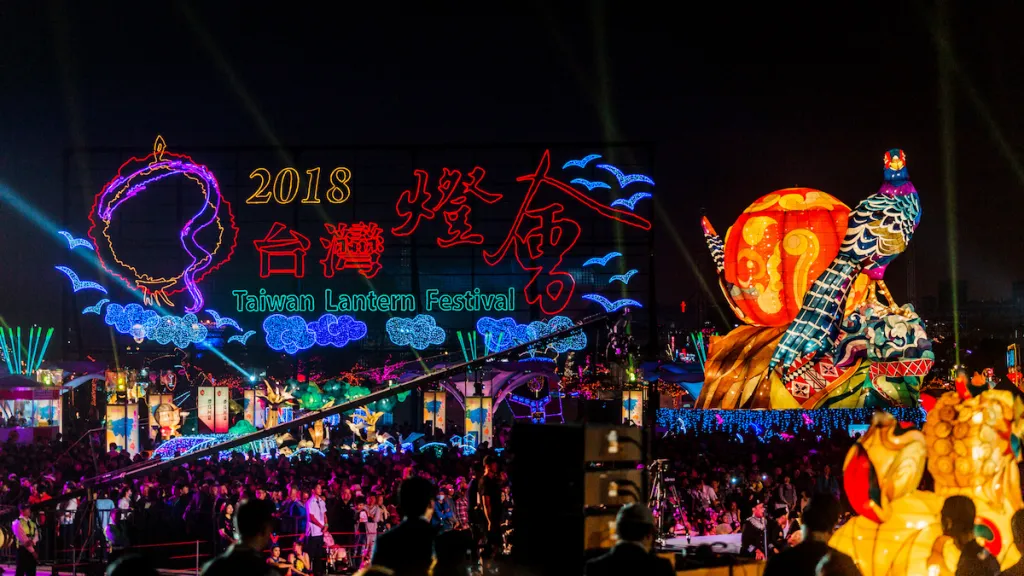
Since the announcement of the visa-free policy until July 2018, Taiwan has been added to many Filipinos’ travel bucket list. With only months before this trial period ends, tourists have been wanting to see more of what’s in Taiwan, including their cultural festivals like the Taiwan Lantern Festival.
Also read: Entering Taiwan Visa-Free: My Experience & Actual Process for Filipinos
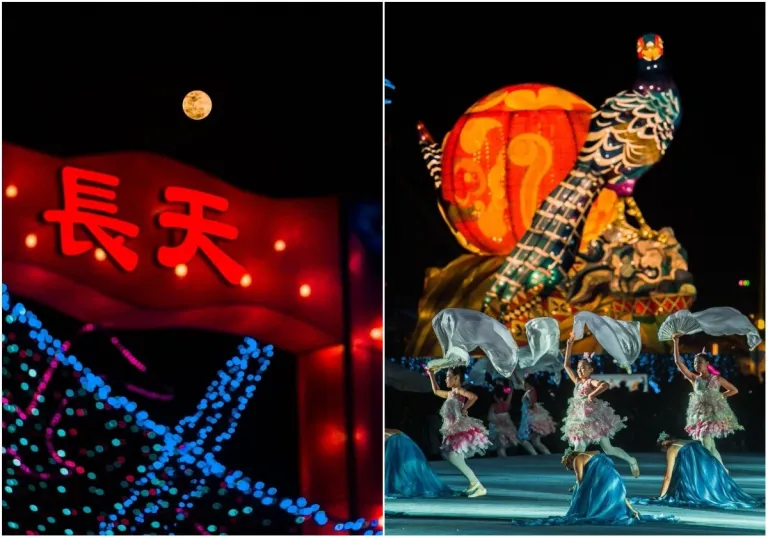
On the 15th day of the first lunar month, the Taiwan Lantern Festival is held as the finale for all celebrations for Chinese New Year, making it the most important festival for Taiwan. And by important, it also means it’s the grandest – from gigantic lanterns bedazzled by different lights and colours to tiny ones you can fit in the palm of your hand. The location and theme vary every year depending on the Chinese Zodiac, making it a unique experience every time for everyone, whether you’re a local or tourist.
Travelling to Chiayi

This year, the festival happened in the county of Chiayi. Although Chiayi is located far from Taipei, we got there in only 90 minutes, thanks to Taiwan’s efficient railway system. To get to Chiayi, we rode the Taiwan High-Speed Rail from the Taipei Central Station to Chiayi Station. From there, there were free shuttle buses to drop us off at the festival’s venue.
At the venue
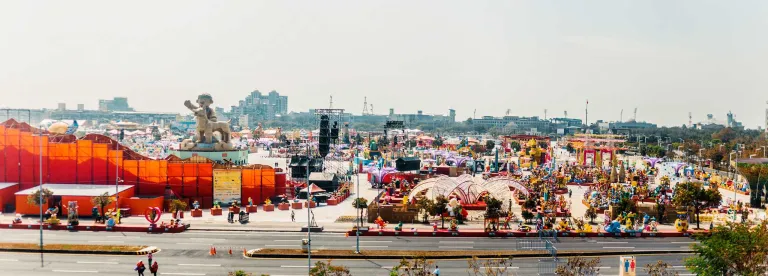
This year, the festival spans 50 hectares of land, making it the biggest ever in the event’s history.
Address: 127-2 Leye Village, Lin 4, Chiayi, Alishan; 阿里山鄉樂野村4鄰127-2號, Taiwan
The lanterns during the day
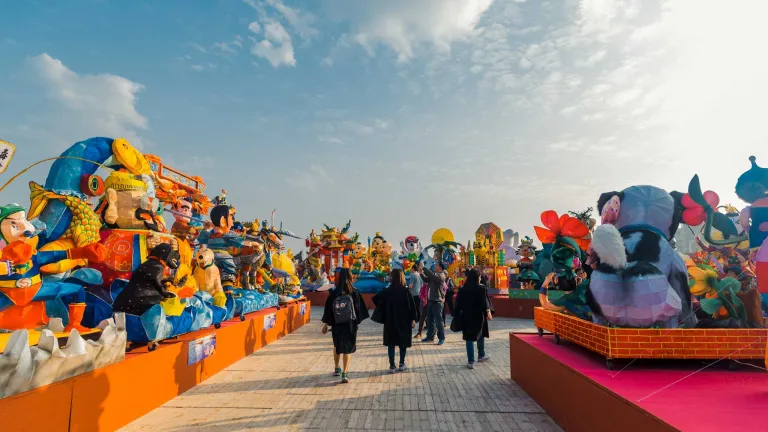
While more fascinating during night time, the lanterns have their own appeal during the day.
The festival’s theme is based on this year’s Chinese zodiac, the Earth dog, with the main lantern depicting an indigenous boy from the Tsou tribe with his dog. The dog is a symbol of loyalty, prosperity and wealth.
The main lantern, aside from its gigantic size, is also dynamic – it waves! Taiwan made sure to incorporate technology in this year’s festival, a first in the event’s history.
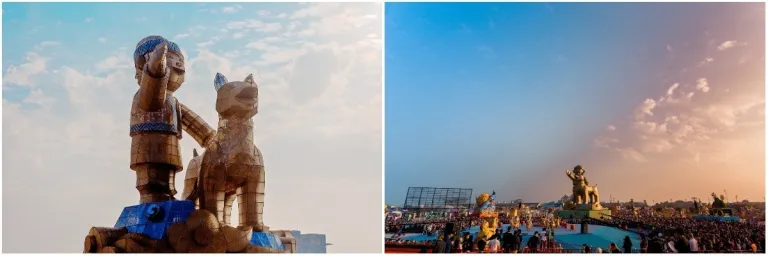
The festival also features lanterns not only from Taiwan, but also from other countries like Cambodia, Japan, South Korea, and other parts of Southeast Asia. It’s like going on an artistic cultural trip in one grand festival!
The lanterns at night
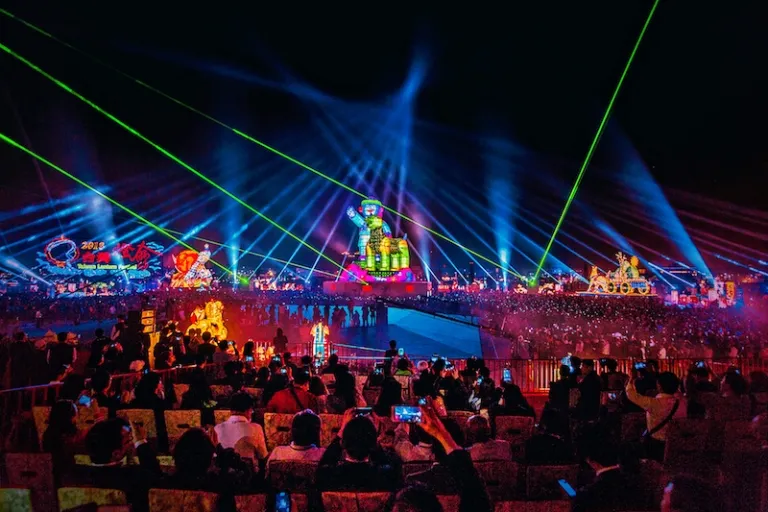
The lighting of the main lantern celebrates the official opening of the festival. While we were at an advantage with our elevated vantage point, if you happen to be placed a bit far from the lantern, don’t fret, the main lantern is actually waving and rotating at 21 metres high! Being on any part of the venue makes it a unique viewing experience.
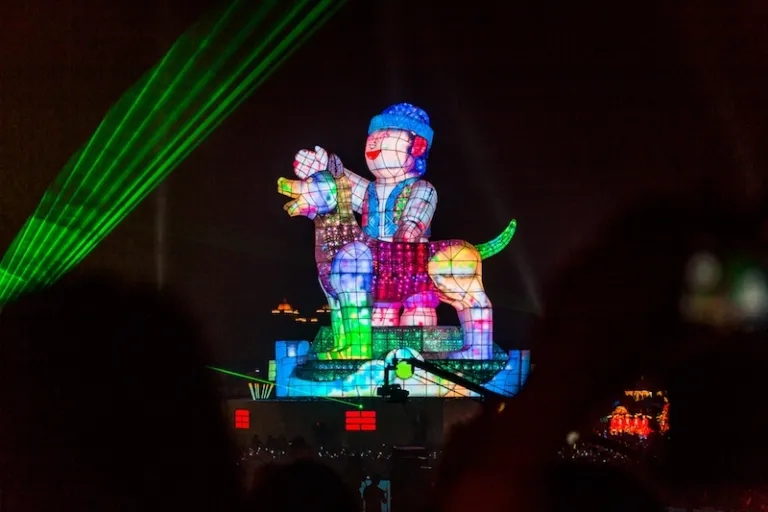
With the festival having approximately 6,000 lanterns this year, you might be wondering, who made all of these lanterns?
The answer is – everyone!
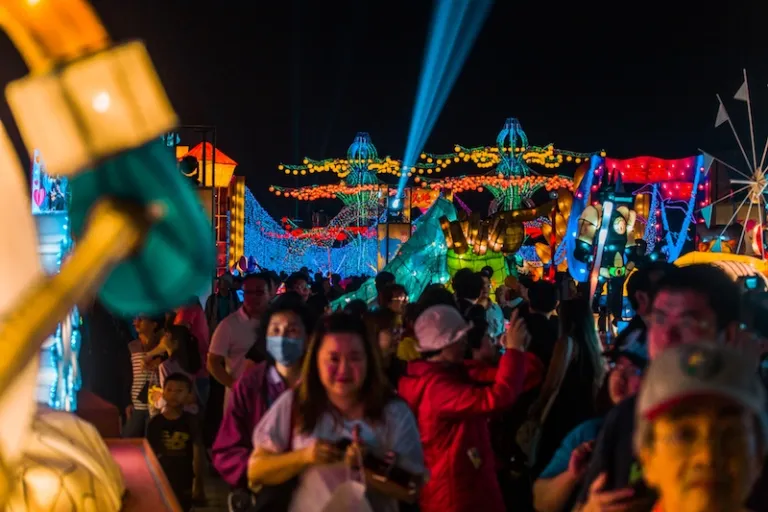
It is a collective effort of both public and private sectors in Taiwan, from elementary school students, local inmates, and local citizens, to professional local craftsmen and artists – making the festival, not just about the lanterns, but also the unity of the people behind it.
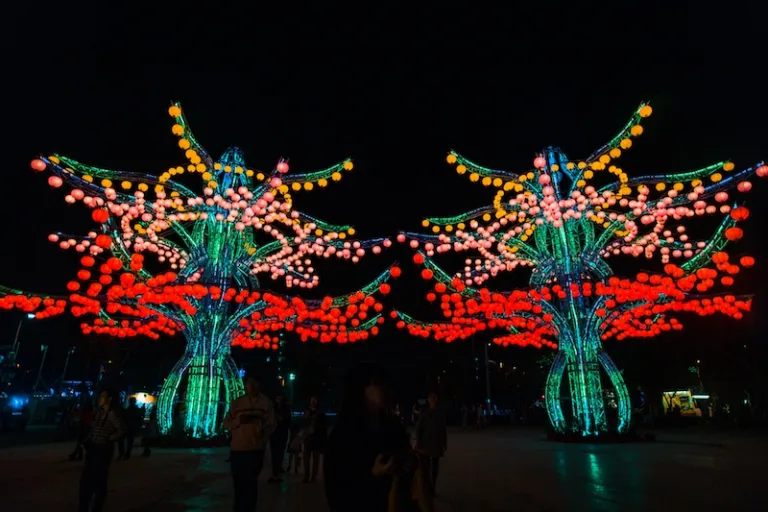
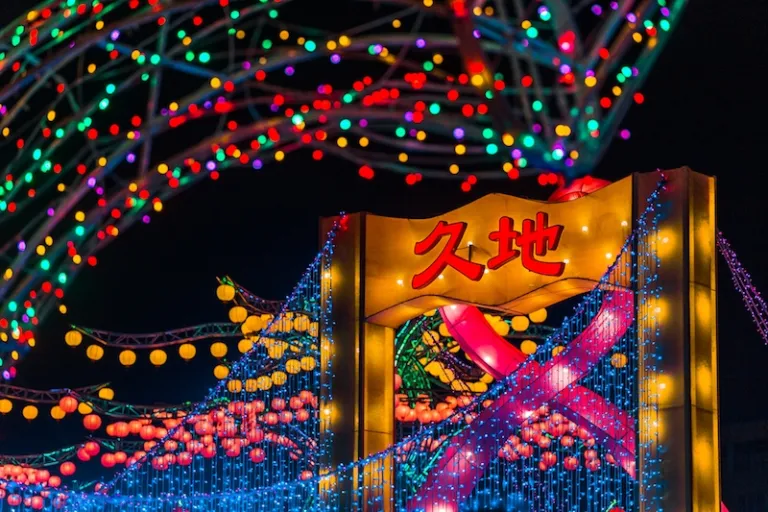
Also promoting eco-tourism, Taiwan made sure to use eco-friendly materials and assured the people that after the festival, the lanterns would not be disposed of and would still serve a purpose by exhibiting them in the different parts of the country and abroad.
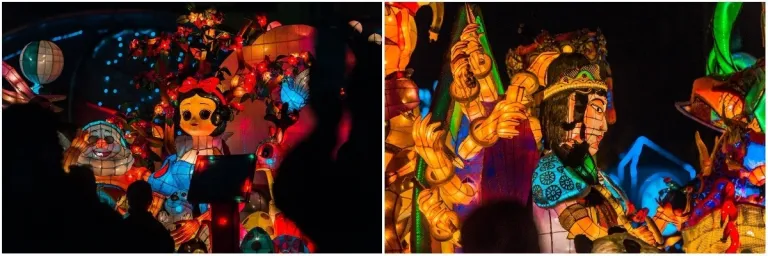
Not just the lanterns

What’s so special about this festival is that you get to try other things the host city or county has to offer aside from marvelling at the lanterns. At this year’s festival, I was lucky enough to sample Chiayi’s local street food, watch different performances from different countries, view artefacts at the Southern Branch of National Palace Museum, explore nature, and many more! Here’s a snippet of the beautiful sights and experiences I had on my trip:
Performers from different countries graced the stage showcasing their own cultural dance production at the Taiwan Lantern Festival’s opening.
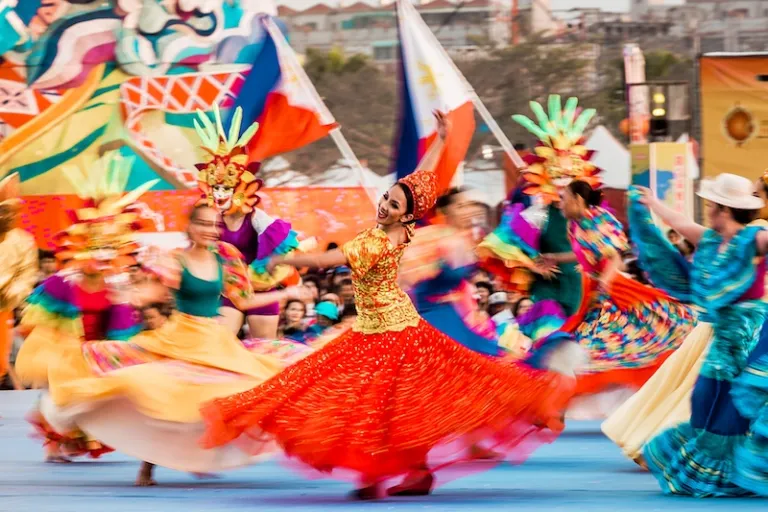
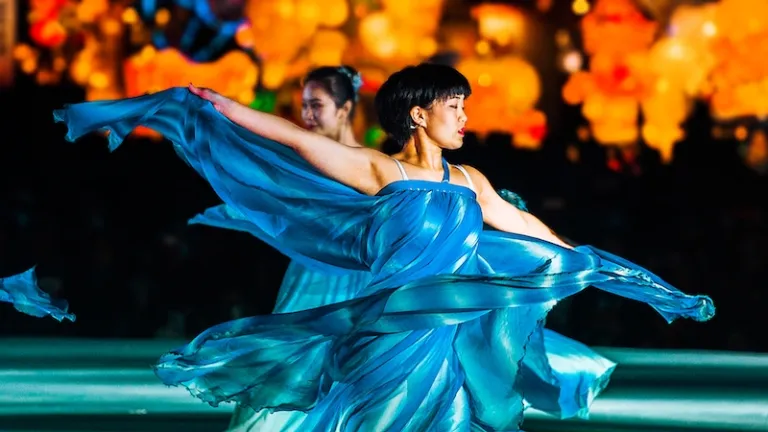
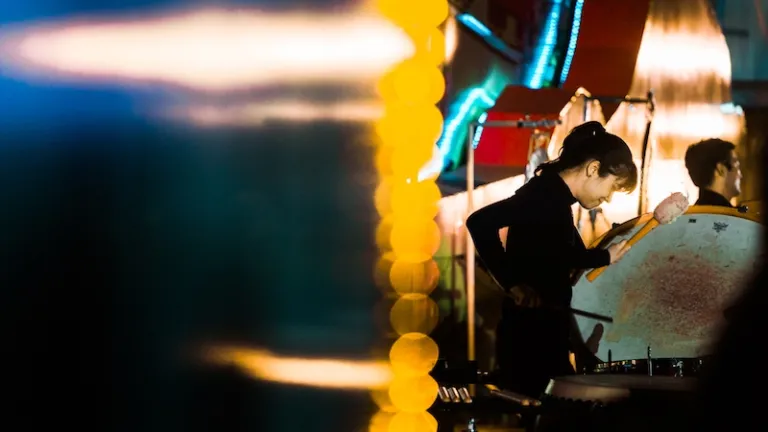
While strolling around the venue, you can indulge in Taiwan’s gastronomic array of street food. I tried the fried mushroom, which are deep-fried bite-sized mushrooms coated in batter, and the famous stinky tofu, which is definitely an acquired taste, but I liked it!

Southern Branch of National Palace Museum
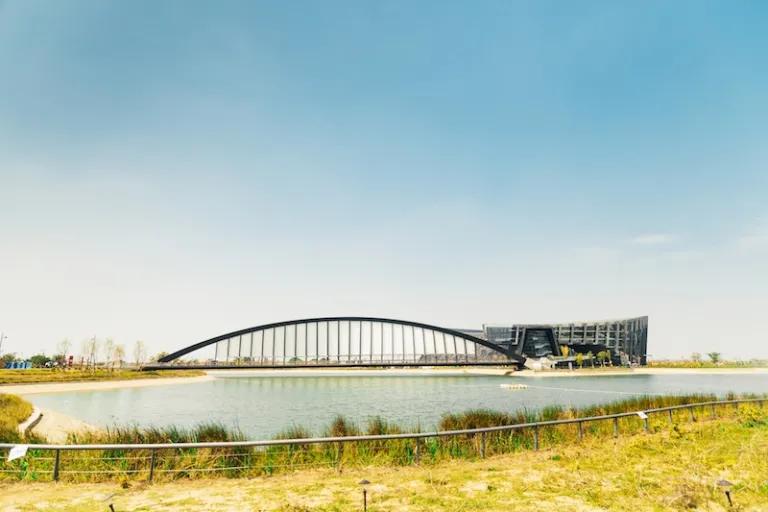
While waiting for sun-down, we visited the Southern Branch of National Palace Museum. The place had such amazing architecture, everything is Instagram-worthy! It has three different parts – the park, the landscape bridge, and the main building. The entrance was free during the festival day.
Also read: 13 Instagram-worthy Spots in Taiwan’s West Coast
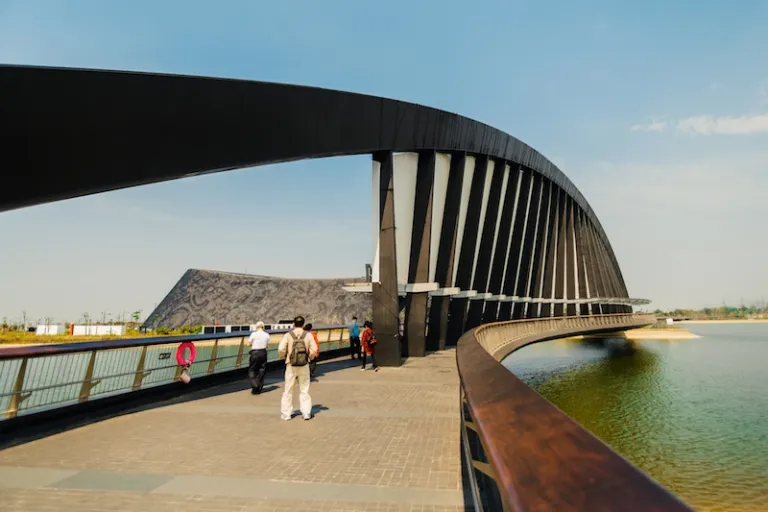
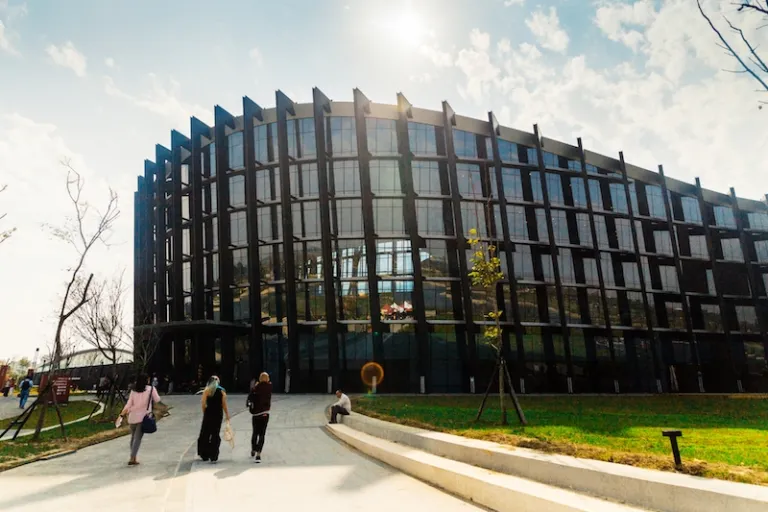
Address: No. 888, Gugong Boulevard, Taibao City, Chiayi County, Taiwan 612
Beyond the Festival: Alishan Mountain
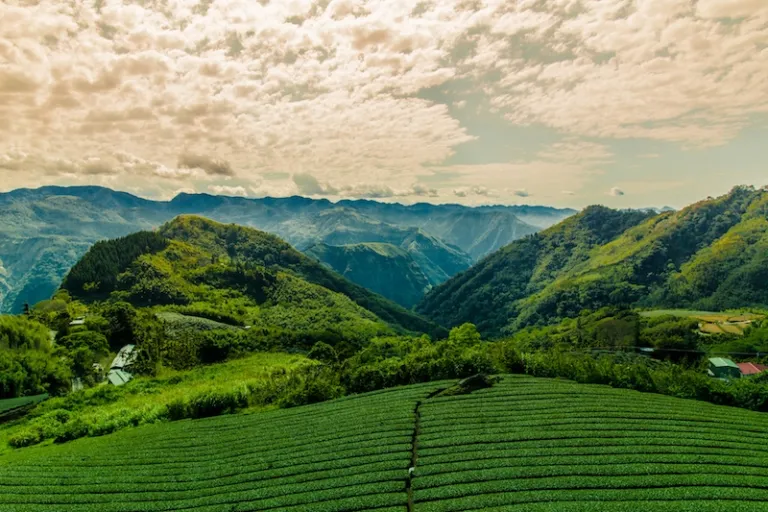
After the festival, you wouldn’t want to go straight home, as Chiayi offers a lot more than that! Best known as the access point of the scenic Alishan mountain, it offers a unique experience for people who would like to enjoy culture and nature in one trip.
Going up Alishan, you’ll see fields of tea leaves everywhere. They say that the higher the altitude, the better the quality of the tea, which means that Alishan Mountain Tea could be the best tea Taiwan has to offer.
ALISHAN WIN: From Farm to Your Cup
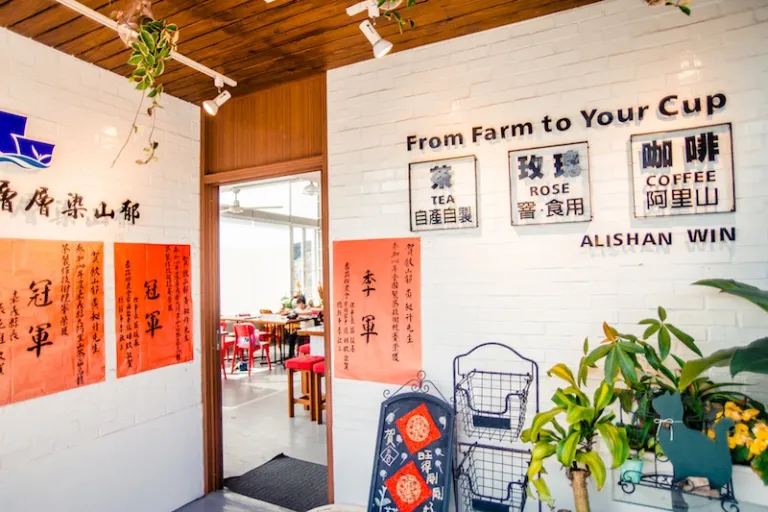
Enjoy your tea with the view of the mountains, and the smell of peach-scented roses in this tea shop in Alishan!
What makes this tea shop special is that it features a garden full of different roses and other flowers! Have you ever tried smelling peach-scented roses?

If you want to just sit back, relax, and enjoy your fresh cup of tea, this is the perfect place for you!
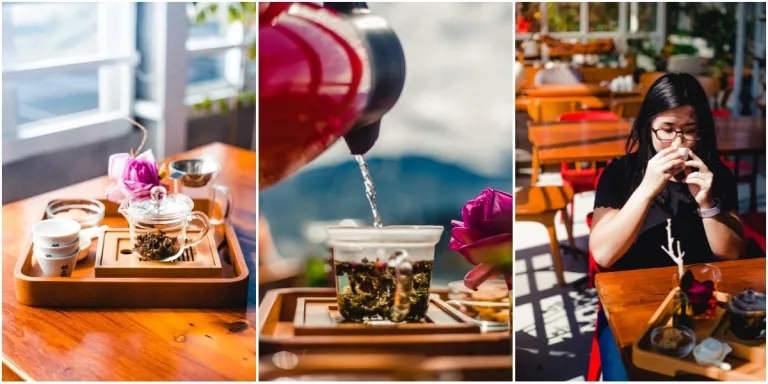
Address: No.9-2, Xiding, Fanlu Township, Chiayi County 602, Taiwan
YuYuPas
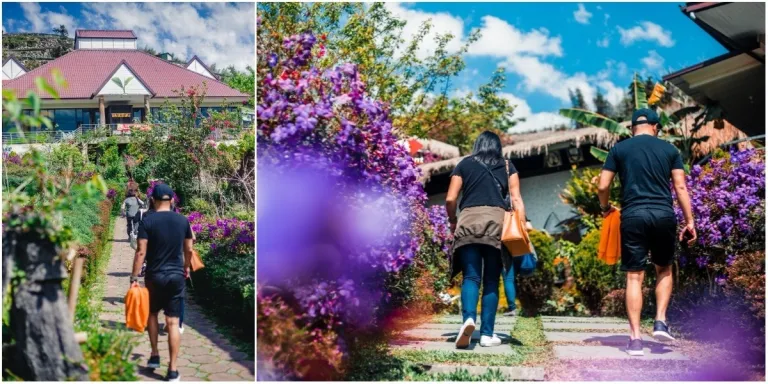
A great way to experience the aboriginal cultures of Taiwan is by visiting YuYuPas, an indigenous culture park of the Tsou tribe.
The pathway alone is really nice, it’s filled with lush plants and flowers. We were greeted by a welcoming ritual by one of the aboriginal members of the Tsou tribe.
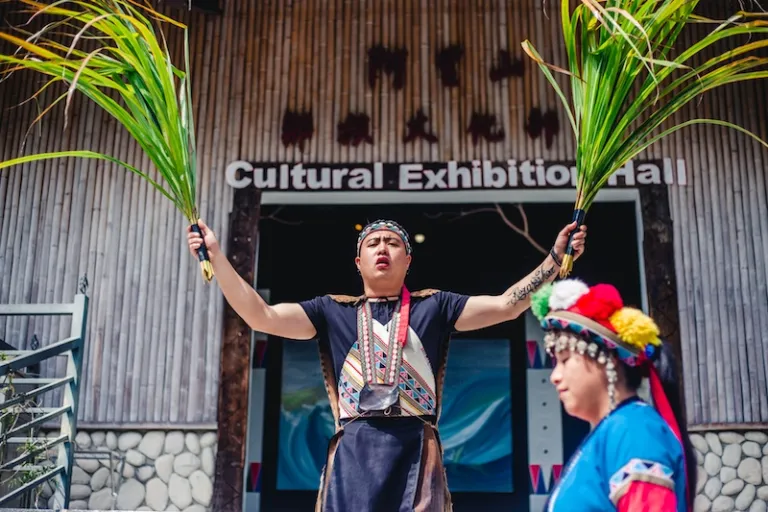
They also give medals to the guests of the park, which you can keep as souvenirs!
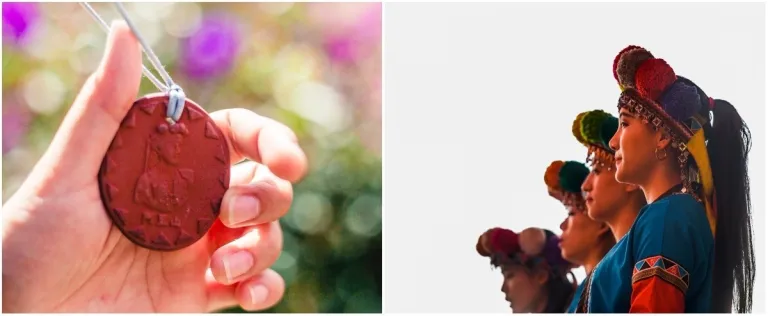
A variety of cultural performances were presented to the visitors – singing, dancing, and rituals were shown during our visit.
During the last portion of their program, the audience was encouraged to join the tribesmen as they danced to ethnic beats, making it an immersive experience for the guests.

Due to a storm that hit Alishan in 2009, the mountain took a heavy toll which affected the people of the Tsou tribe. In order to maintain their way of living and preserve their culture, YuYuPas was established as a cultural park. YuYuPas means “rich” and “safe” in the Tsou language.

After the performances, you can get lunch and experience Alishan’s native delicacies – all locally-sourced!
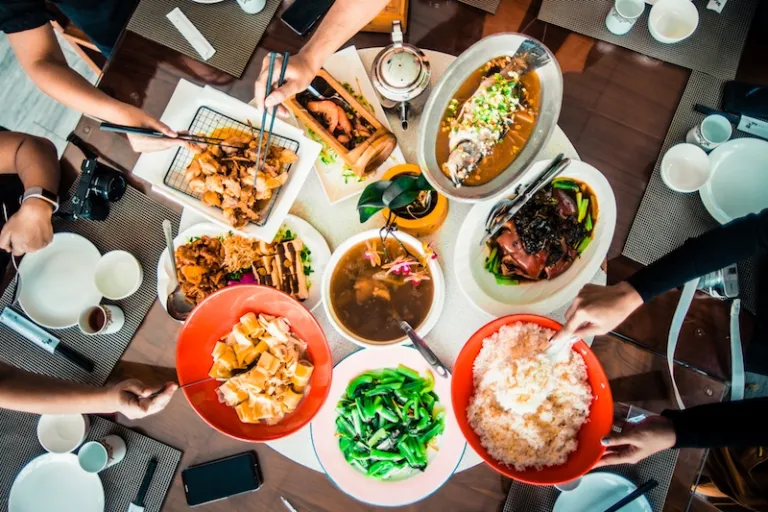
Your YuYuPas experience wouldn’t be complete without trying their famous Alishan Mountain Tea!
With an elevation of 1,300 m, Alishan boasts their high-quality tea having the best taste and aroma, grown naturally without pesticides. Surrounded by fields of alpine mountain tea, you can savour your tea while feeling the fresh mountain breeze.
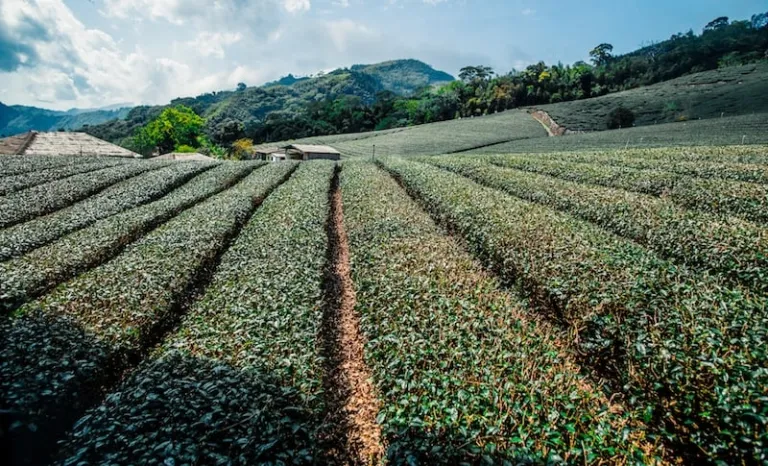
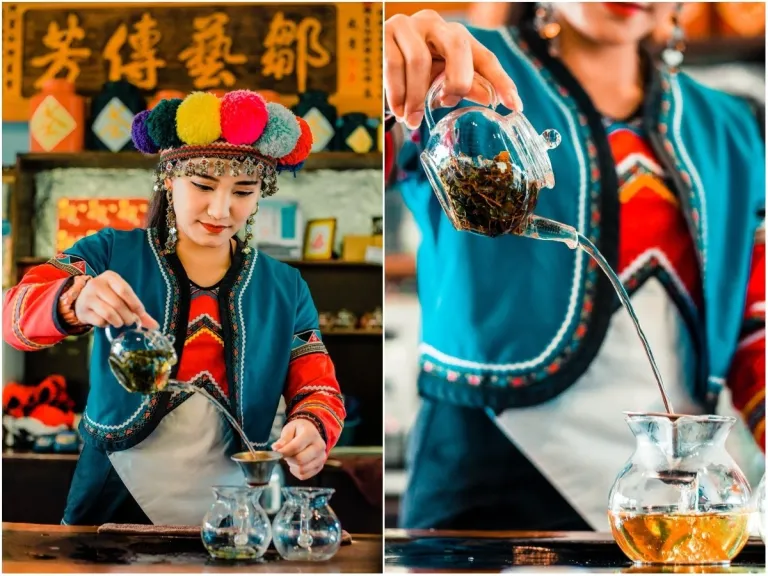
There were different kinds of Oolong Tea used in the tea-making process. Each has a unique taste and aroma, making every cup a new experience for us.
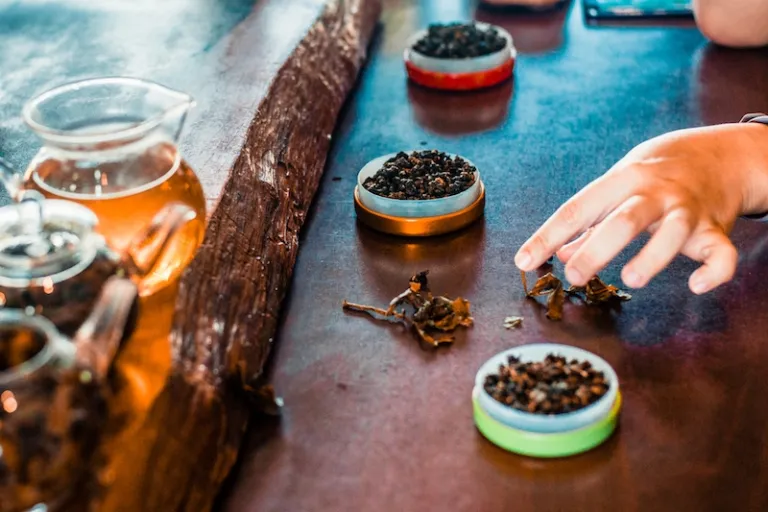
Long Yun Leisure Farm
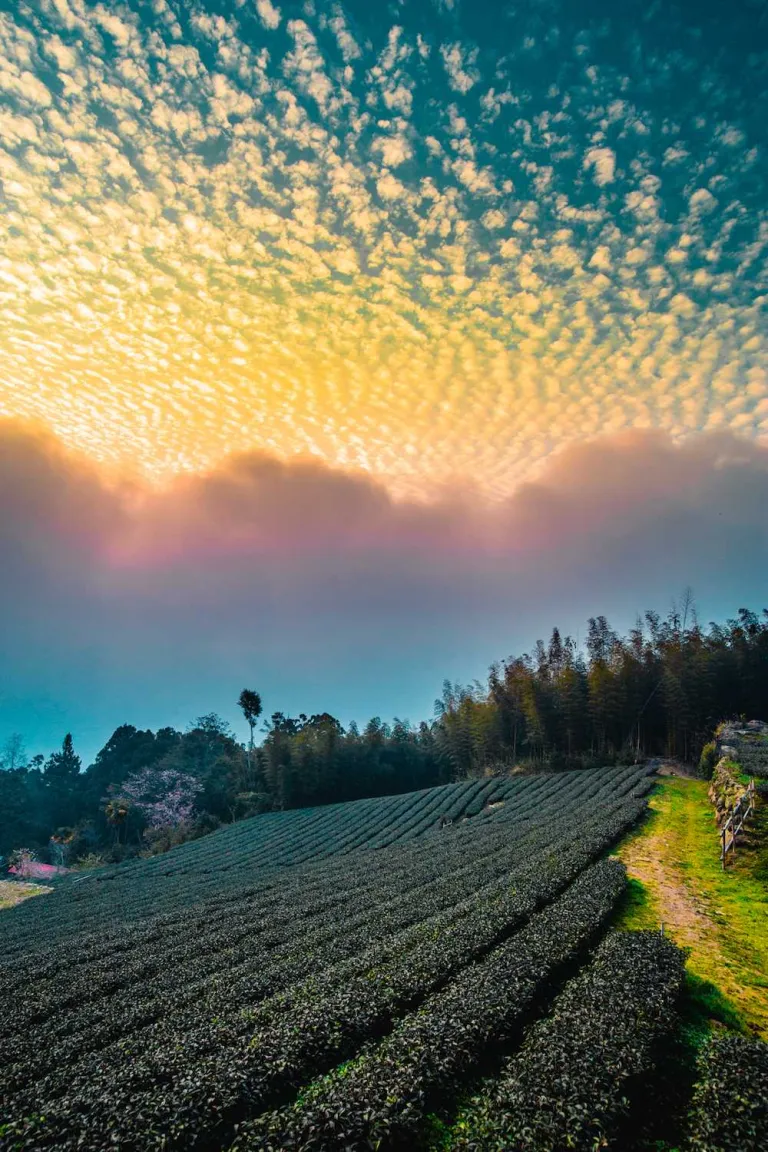
Complete your immersion on Alishan’s mountains by staying at Long Yun Leisure Farm, a lodge-type hotel that produces their tea from their own tea fields.
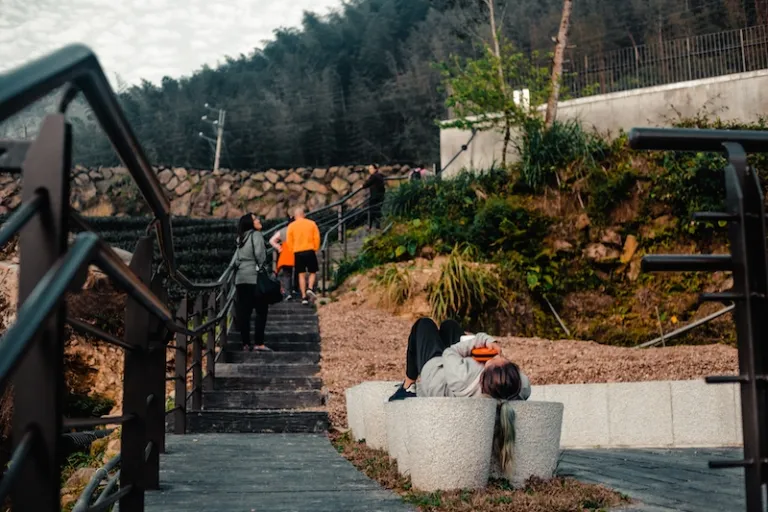
Tip: Make sure to reserve some energy because you’ll do a lot of walking on steep walkways and stairs! Wear comfortable shoes and bring a coat, a sweater, or a hoodie to fight the cold. It gets chilly as the sun goes down.
We admired the sunset from Long Yun’s viewing deck even though it was quite cloudy. The cirrocumulus clouds, usually seen from high altitudes, added a different touch from the usual sunsets we see from the city.
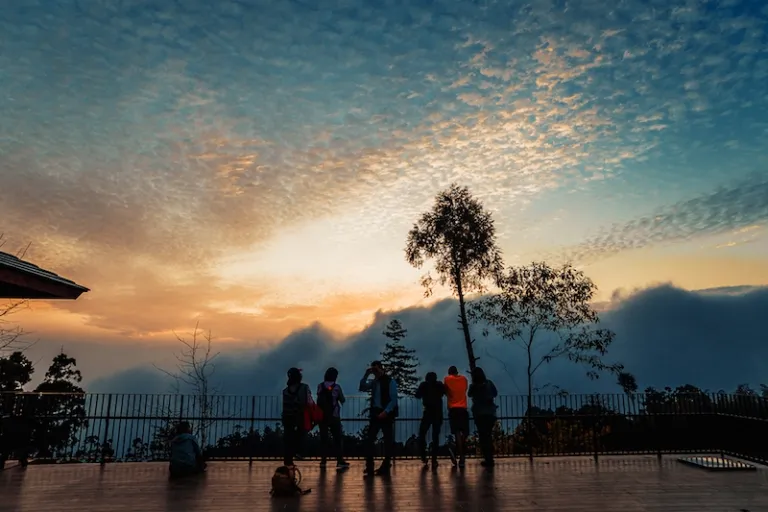
We also had our dinner here, which is completely halal! Their restaurant has a signage that says “Muslim-friendly” and that they provide halal and vegetarian options for their guests.
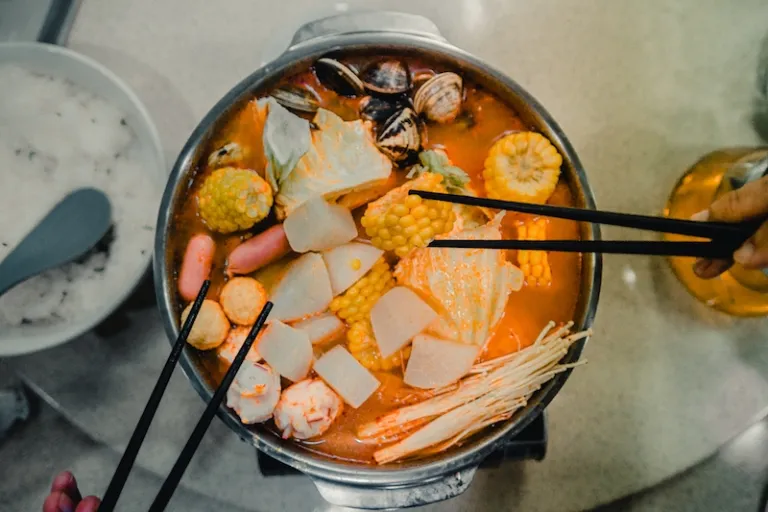
After our dinner, we made our dessert. Yes, we made it!
The farm offers a mochi-making activity that everyone can try. We pounded the sticky rice with a huge mortar and pestle, livening up the energy of the guests as we needed lots of force to produce the mochi. We also had a great time gaining new friends from the locals and other guests, too.
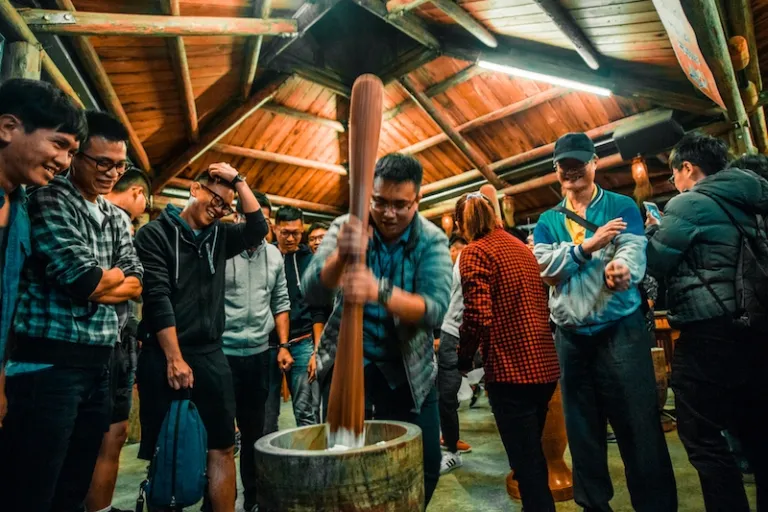
It gets quite difficult to pound when the sticky rice’s consistency gets thick – a sign that it’s almost ready for eating.
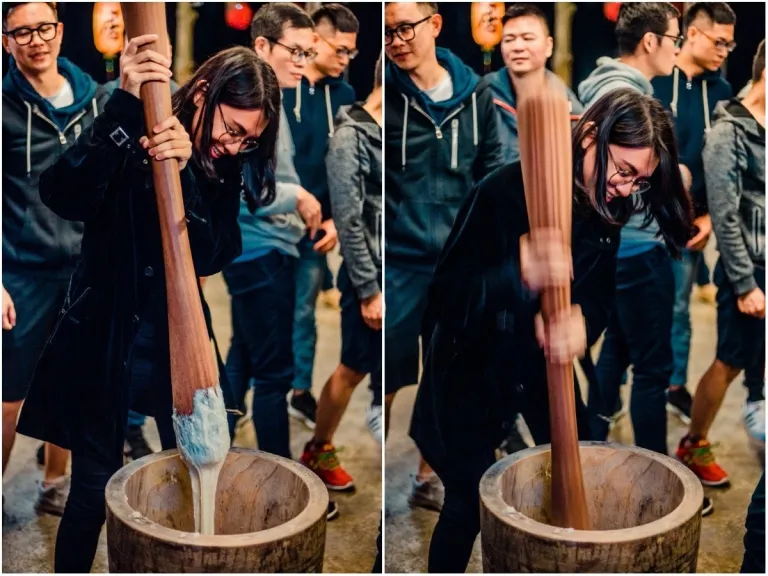
The pounded sticky rice was then transferred and coated in a pan of ground peanuts, the finishing ingredient for our mochi.
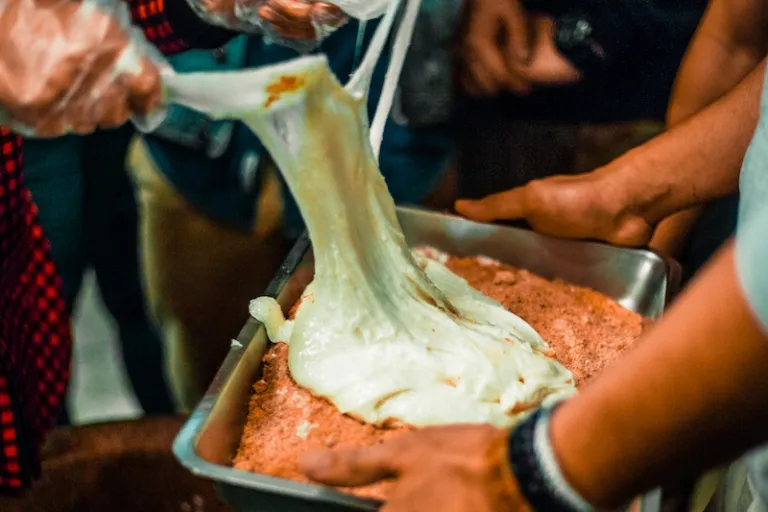
Be sure to get some for yourself quickly, because it’s a definitely a hit for everyone!

Fenchihu Old Street
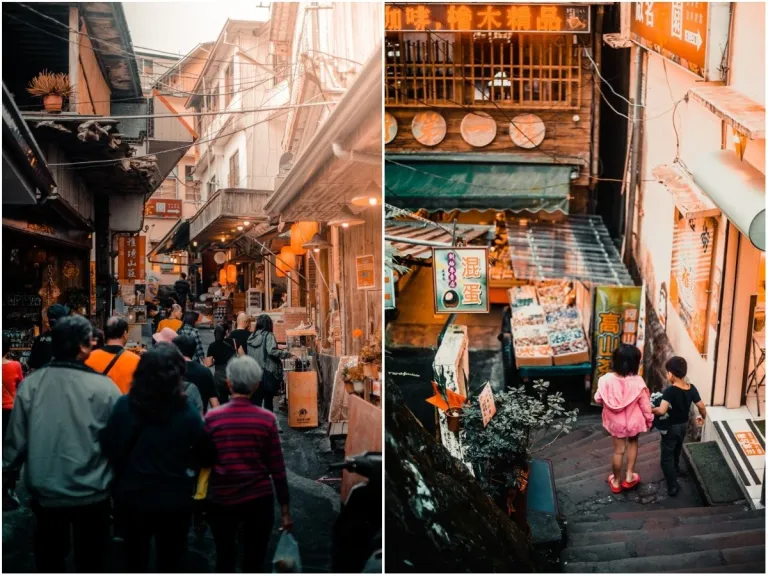
History is always a good thing to add to your itinerary, and in our case, strolling around Fenchihu Old Street fulfilled this aspect of our trip.
A popular stop for tourists heading to Alishan National Forest Recreation Area, Fenchihu Old Street brings in history, once being a refuelling stop for old Alishan Forest trains. It is also the street with the highest elevation in Taiwan at 1,400 m.
Walking along the streets of Fenchihu would bring you to local food and souvenir shops. Even if you’re not buying anything, experiencing the ambience of the place is a must, making it a must-see destination in Alishan.
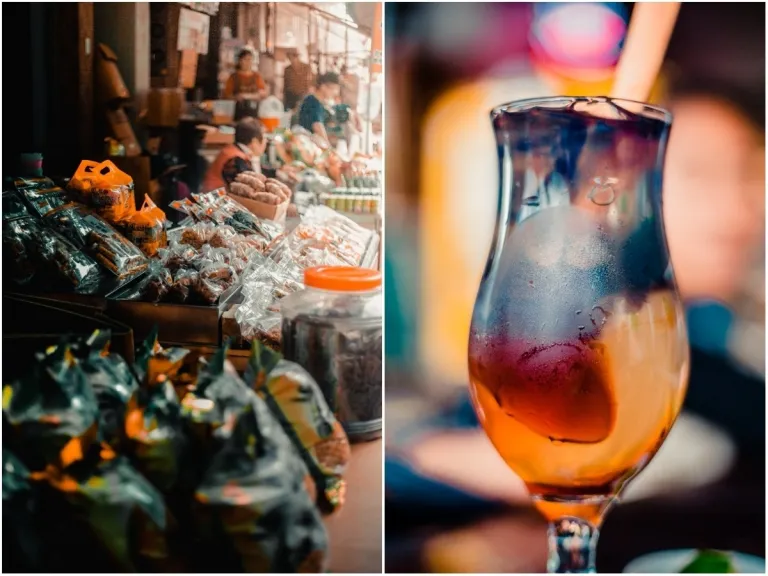
Different kinds of food and snacks are available in the street market- from pastries, jerky, and mochi, to colour-changing jelly desserts, which is a must-try if you’re looking to cool down from all the walking.
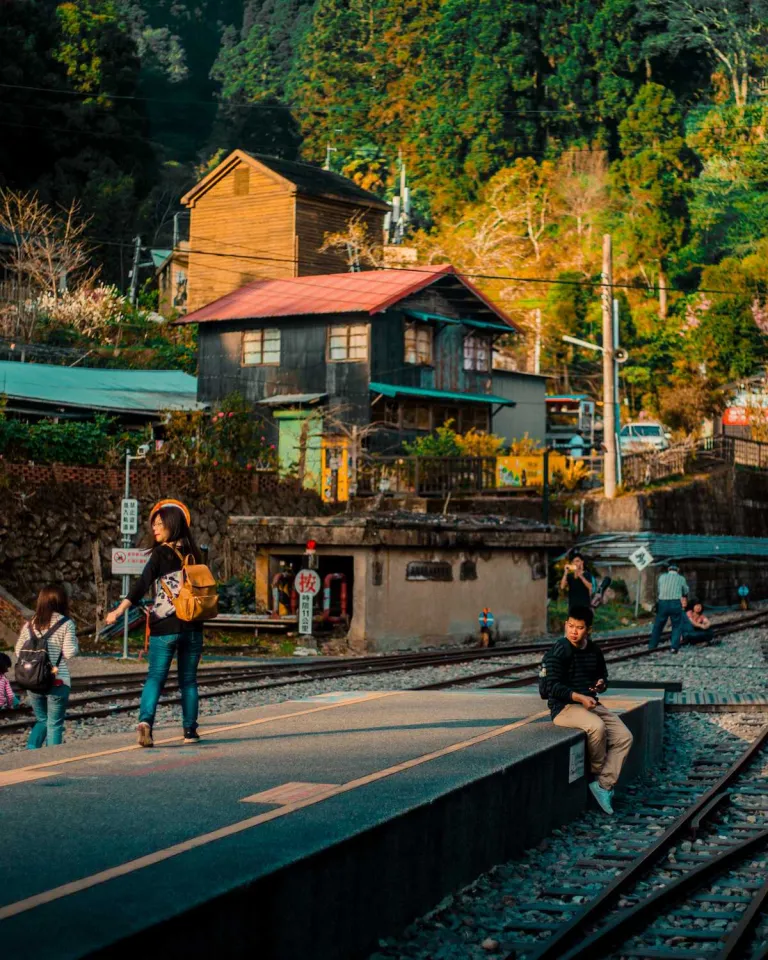
You can also relax and chill along the old railways of Alishan, together with other tourists who want to appreciate the area.
Alishan National Scenic Area
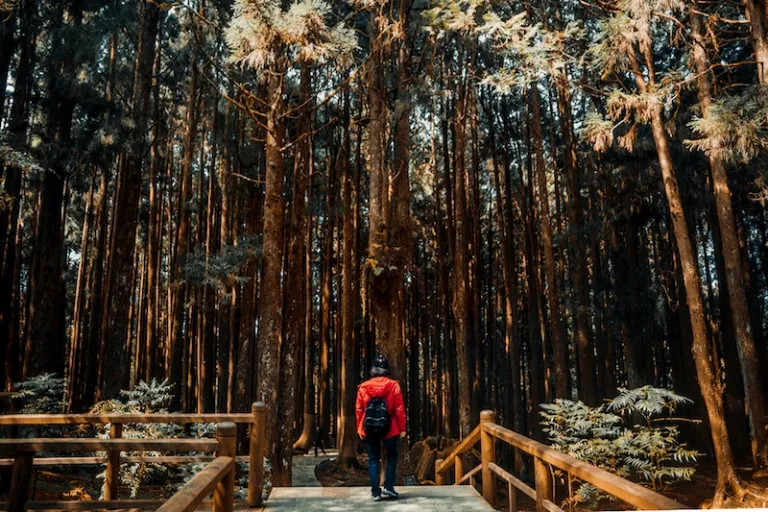
A world-renowned park famous for its cedar and cypress forests and old railways, Alishan National Scenic Area is the perfect place for the nature-lover.
While most of the exploration is done by walking, Alishan National Scenic Area offers a unique experience by transporting you to the main park with their old forest railways.
Take the train at the Forest Railway Alishan Station. A one-way ticket costs NT$100, (roughly ₱180). To go back, walk all the way down the park to make the most out of the trip.
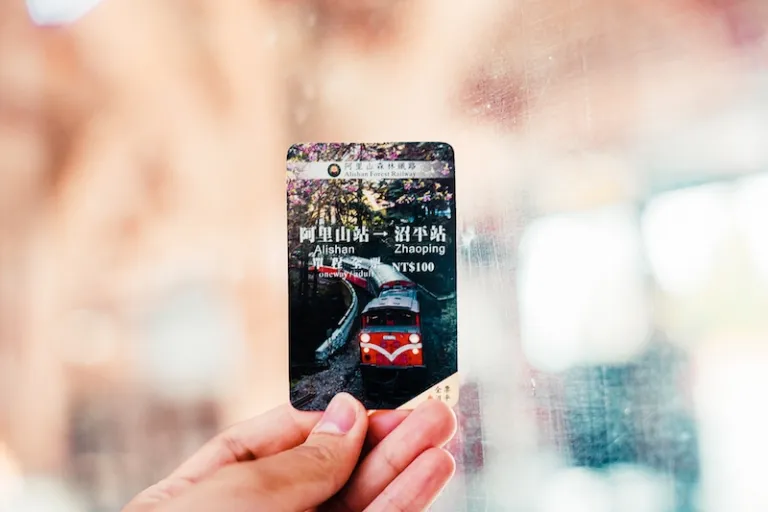
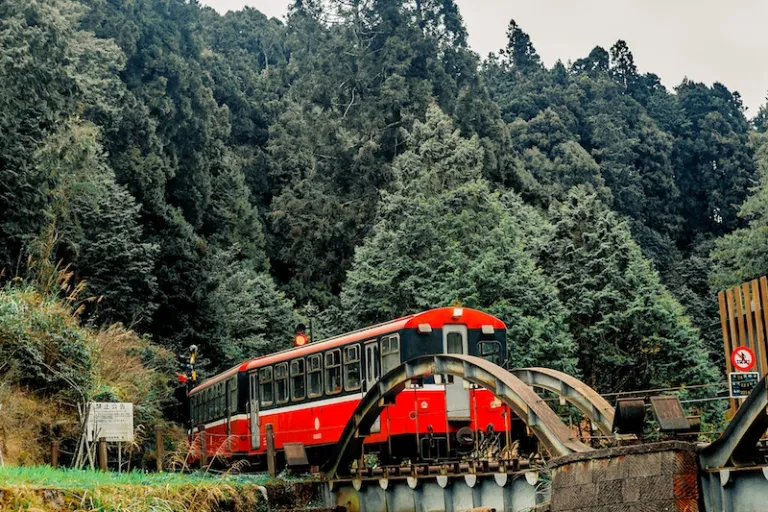
The station and the trains reminded me of Studio Ghibli, specifically the movie Spirited Away. If you’re also a fan, then you’ll definitely enjoy this!

Giant hundred-year-old Japanese Cedar and red cypress trees, breathtaking mountain landscapes, the freshest air, and the perfect weather, the Alishan National Scenic Area makes up for all the nature-loving you’ve been missing in the city.
Tip: Like in Long Yun Leisure Farm, prepare a coat, jacket, or a sweater to fight off the cold temperature of this park. Also, wear comfortable shoes since a lot of walking is involved.
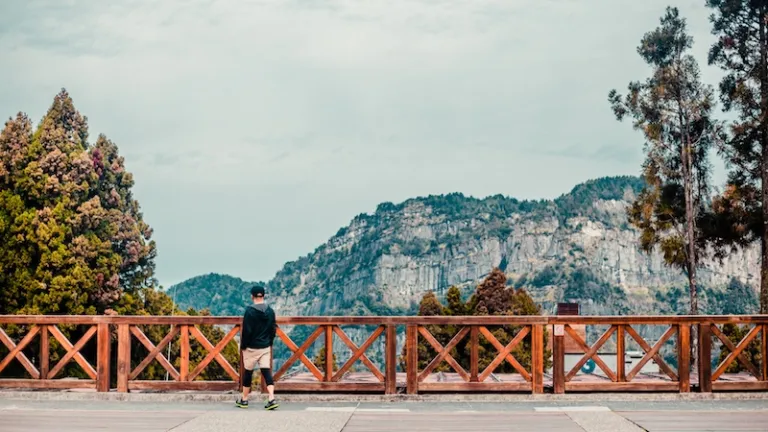
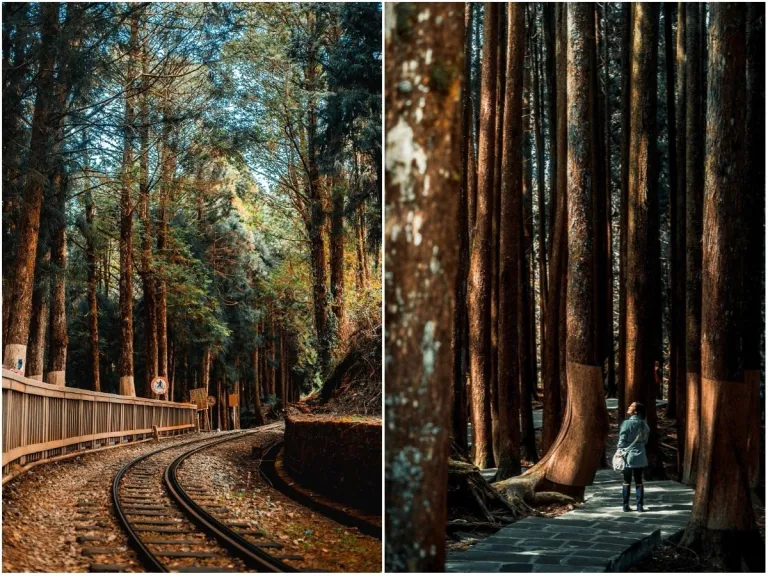
Feel free to go deep into the forests’ routes as you wouldn’t have to worry about getting lost here. The park provides trails and maps you can view to navigate the area.
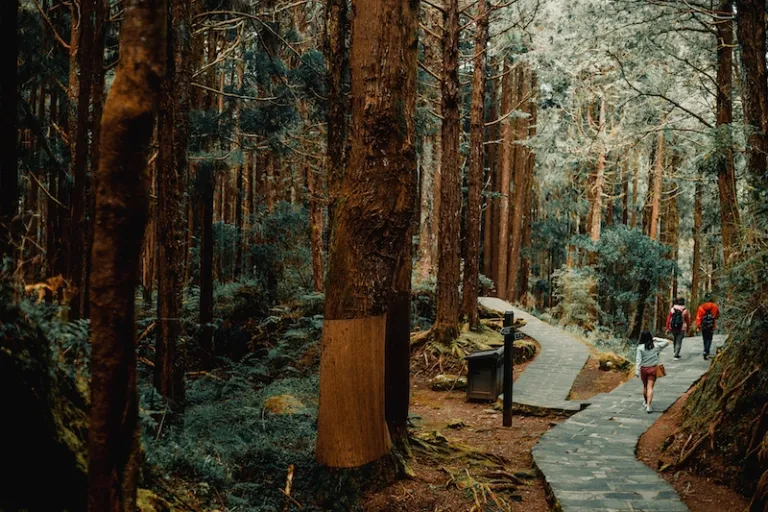
Alishan’s Cherry Blossoms
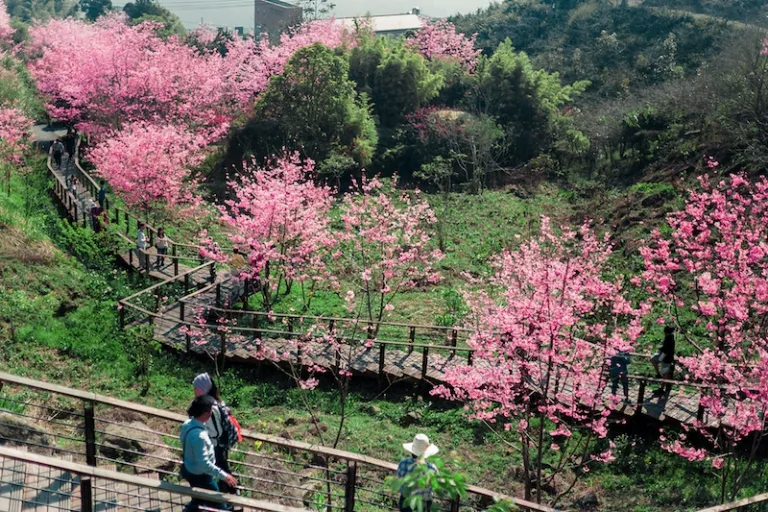
Japan? Korea? Nope! It’s Taiwan!
Don’t forget about Taiwan when you think about cherry blossoms, as Alishan is also rich in cherry blossom trees. See a lot of it at the highway near Mituo Temple, or in Alishan National Scenic Area.
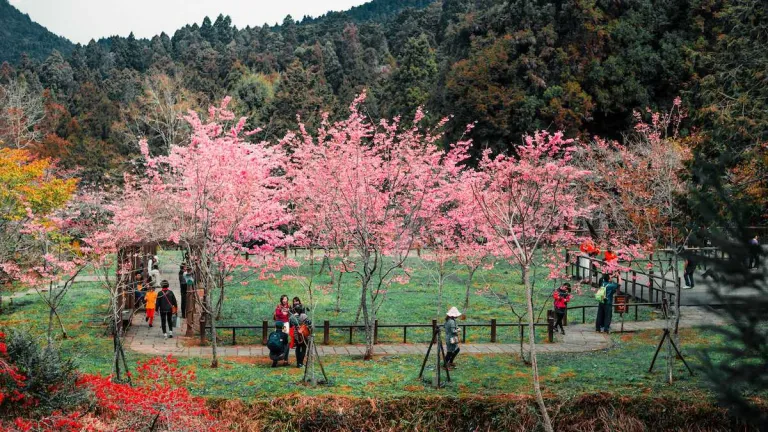
Did you know that cherry blossoms in Taiwan bloom earlier than that of Japan and Korea? The cherry blossom season here usually starts from February and ends in March.
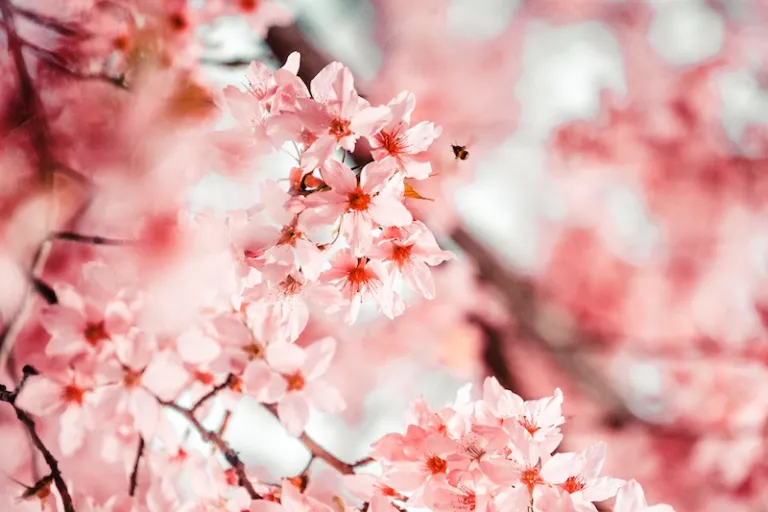
Fun Fact: Reddish cherry blossoms are the ones native to Taiwan, while the light pink cherry blossoms were brought from Japan during the time Taiwan was under the Japanese rule.

Of course, we took lots of photos. Who wouldn’t?
To wrap things up
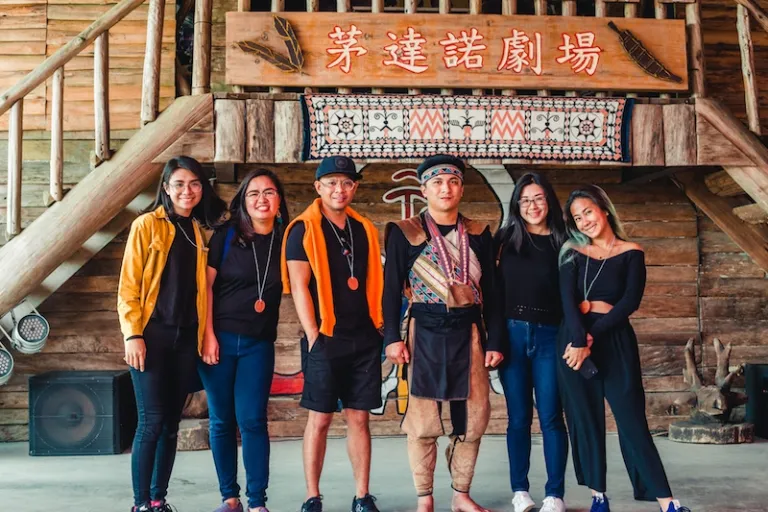
Experiencing the Taiwan Lantern Festival isn’t just about the lanterns and being in the venue, but it is also about exploring what the host city has to offer. As this year’s host city, Chiayi has presented itself as a place rich in culture and nature.
If you’re a person who wants to take a breather from all the hustle and bustle of the city, then this is the Taiwan adventure for you!
Special thanks to Taipei Economic and Cultural Office (TECO) in the Philippines and Taiwan Tourism Bureau for making it possible for me to experience the Taiwan Lantern Festival 2018 and other wonderful parts of Chiayi.
Published at
About Author
Ayo Mangoroban
Subscribe our Newsletter
Get our weekly tips and travel news!
Recommended Articles
My 10-Day Southern Vietnam Backpacking Trip for Less Than ₱15k 10 Family Outing Ideas in Metro Manila Under ₱500 Looking for a weekend bonding with the family under ₱500? Head to these places, pronto!
10 Things to Do in Clark for Your Next Weekend Getaway The ideal weekend destination for every traveller.
10 Tips for Planning Out-of-Town Trips During Typhoon Season Stay safe and travel well during the rainy season.
12 Things To Do in Guimaras Island on Your First Visit Aside from eating mangoes, here are things to do in the Philippines’ Mango Capital–Guimaras Island.
Latest Articles
Pop Mart PH Opens Permanent Flagship Store in SM Megamall Labubu and Hirono have arrived! Check out holiday hours and event recaps here!
Chen of EXO Arcadia Concert Manila 2026: Tickets, Dates, and Perks Ticket info and fan perks
TLC Playpark: Free Christmas Destination in Taguig, Opening Hours, and Commute Guide Learn what to expect and how to get to TLC Playpark in Brgy. Lower Bicutan Taguig via C5 and MRT-3!
Free MRT and LRT Rides for LGBTQIA+ Members and Solo Parents Today Who rides free today
Philippines Among the World’s Friendliest Countries – US News 2025 Ranking Learn why Filipino hospitality makes every trip unforgettable.

